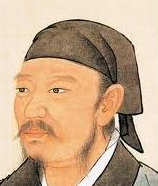
|
Go to China main page Procursus, Military Debate |
Content created: 2014-08-30 File last modified: Go to English-only layout. |


This brief passage contains Master Xún’s famous statement that basic human nature is “evil.” It is an argument that any modern logician would consider fallacious, but it is China’s most widely quoted logical refutation of Mencius' idealized Confucianism. (It comes from near the beginning of chapter 23 of the standard edition of Xúnzǐ’s work, a chapter usually entitled, logically enough, “Human Nature Is Evil” [Xìng È 性恶]).
Several terms dominating this text bedevil the English translator (in this case, me), because context and convention sometimes conflict:
For linguistic details of the difficulties posed by these terms, click here.
Go to English-only layout.
Go to English-Only Layout
Return to top of page.